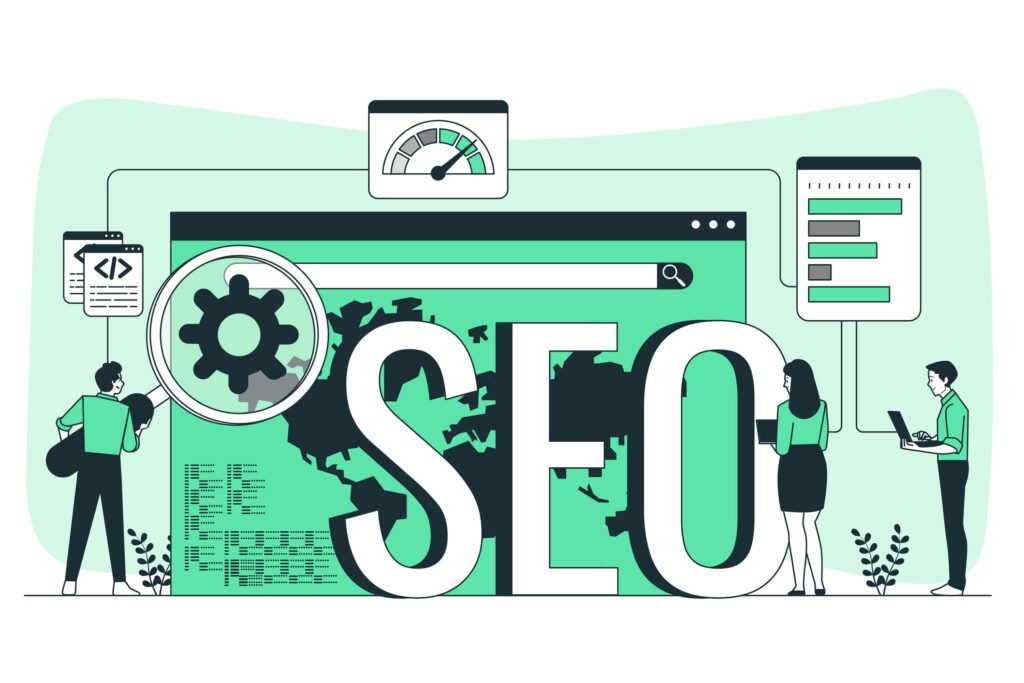
Website indexing process
Activities of indexing robots
Search engine robots are called "spiders" or algorithms that automatically browse the Internet, following links and collecting information from different web pages. These robots scan pages, save their content and transmit it to search engine servers for indexing, as the website is validated, the website appears in searches.
Indexing time
Site indexing time may vary depending on several factors such as site quality, content uniqueness, server speed, and web page structure. These factors can affect how quickly a search engine discovers new content.
Website accessibility and robot bans
It is important to note that there is a possibility that certain websites may be protected from bot scanning. This can be done by using robots.txt files or by setting special instructions that prohibit certain web pages or parts of pages.
Impact on SEO and speed of results
The process of indexing a website has a direct impact on SEO strategies and the speed at which search results appear. Well-optimized websites, content updates and the right structure can help you attract the attention of robots faster and improve your visibility in search engines.
What factors can affect indexing time?
Here's a sample structure you can use to analyze the factors that can affect your website's indexing time:
Quality of website content
Website content is one of the most important factors that can affect indexing time. Unique, useful and quality content often attracts the attention of a search engine and can speed up indexing.
Quality and number of references
Having quality and relevant links from other web sources can speed up indexing. The more trusted links pointing to your site, the faster search engines can find and index your content.
Improving the technical condition of the website
Technical factors such as page speed, web page structure, mobile friendliness, proper URL format, and page markup can also affect indexing speed.
Periodic content updates
Regular content updates, publishing news or publishing blog posts can also help attract search engine attention and speed up indexing.
Server stability and availability
Stable server performance, minimum server response time, and proper server configuration can ensure that search engines can easily access your website, which can also affect the indexing process.

Time for a new site to appear in search results
Here is structured information about the time it takes for a new website to appear in search results.
New site indexing time
The time a new website appears in search results may vary. It depends on the algorithms of search engines like Google or Bing, the quality of the content, the structure of the website and other factors. Usually, a new website appears in Google searches within 1-3 months. from submitting your sitemap.xml (link map) to Google Search Console. It takes anywhere from 9-12 months to generate more traffic from Google searches, which is how long it takes for web pages to rank higher in keyword searches.
Importance of initiating factors
The quality of the site's content, the number and quality of links to it, technical parameters and other initiating factors can affect the time a new site appears in search results.
The importance of SEO optimization
Proper SEO (Search Engine Optimization) can improve the visibility of a new website in search engines and speed up its indexing and appearance in results.
Troubleshooting faults and problems
Sometimes, the indexing time of a newly created website may be longer due to technical problems or poorly designed website structure. It is important to address these issues to improve indexing.
Observations and strategies for improvement
Let's note that experience and observations can help improve the indexing of a new site in search results. Let's monitor trends and adopt strategies that can improve visibility.

How to optimize a website for faster indexing?
Here's how information on how to optimize your website for faster indexing could be structured:
Website technical optimization tools
- Page speed: Need to optimize images, reduce file size and use proper servers to improve site load time.
- Mobility friendliness: The importance of having a mobile website that adapts well to mobile devices and how it can affect indexing.
- Site structure optimization: Proper web page structure, URL structure, and sitemap.xml can help search engines understand your site's content more easily.
Content and SEO optimization
- Unique and quality content: Let's explain why content needs to be unique, informative and relevant to users and how it can lead to faster indexing.
- SEO optimization: Let's discuss how to properly use keywords, optimize title tags, meta descriptions and other SEO elements to improve your website's visibility in search engines.
- SEO efforts over a long period of time: Let's discuss how long-term and consistent SEO efforts can lead to permanent changes in website positions.
- Keyword optimization: Let's discuss how proper use of keywords, creating title tags and meta descriptions can help a website appear faster in search results.


